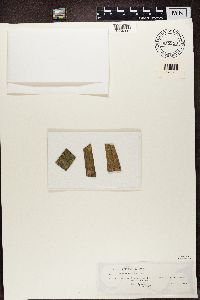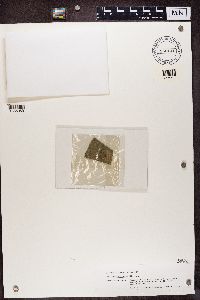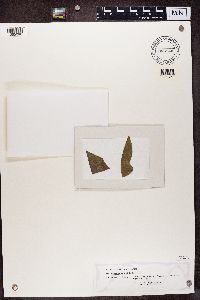University of Minnesota
http://www.umn.edu/
612-625-5000
http://www.umn.edu/
612-625-5000
Minnesota Biodiversity Atlas
Bell Museum
Dataset: MIN-Lichens
Taxa: Tricharia
Search Criteria: excluding cultivated/captive occurrences
1
Page 1, records 1-13 of 13
Bell Museum lichens | |
MIN:Lichens | Tricharia subumbrosa Lücking & W.R. Buck 019988[]Tucker, S. 213571980-10-16 United States, Louisiana, East Baton Rouge, C of Baton Rouge, Ben Hur Farm, 0.5mi W of Dean Lee Dr, 0.5mi SW of Nicholson Rd, south of LSU campus, 30.383333 -91.183333 |
MIN:Lichens | Tricharia santessonii D. Hawksw. 664983[] s.n. Philippines |
MIN:Lichens | Tricharia santessonii D. Hawksw. 666524[]Tucker, S. 90081971-01-13 United States, Louisiana, East Baton Rouge, Baton Rouge, Essen Lane, 30.413005 -91.11328 |
MIN:Lichens | Tricharia santessonii D. Hawksw. 704199[]Tucker, S. 168491977-03-08 United States, Louisiana, East Baton Rouge, Baton Rouge, Essen Lane, 30.40568 -91.10311 |
MIN:Lichens | Tricharia santessonii D. Hawksw. 756596[]Thrower, S. 24251976-02-03 China, Hong Kong, Tai Po Kau Forest office |
MIN:Lichens | Tricharia santessonii D. Hawksw. 805077[]Wetmore, C. 648371989-11-21 United States, Georgia, Charlton, Jones Island; Okefenokee Natural Wildlife Refuge / Stephen Foster State Park, 30.82388889 -82.36333333 |
MIN:Lichens | Tricharia santessonii D. Hawksw. 805099[]Wetmore, C. 642901989-11-14 United States, Georgia, Charlton, Chesser Island Near Homestead; Okefenokee National Wildlife Refuge, 30.71416667 -82.15694444 |
MIN:Lichens | Tricharia tuckerae Lücking & W.R. Buck 819294[]Tucker, S. 310421991-09-13 United States, Louisiana, East Baton Rouge, Baton Rouge, 30.413005 -91.11328 |
MIN:Lichens | Tricharia santessonii D. Hawksw. 837507[]Wetmore, C. 650471989-11-24 United States, Georgia, Ware, Cowhouse Island 1 Mi E of Park; Okefenokee National Wildlife Refuge, 31.10444444 -82.25583333 |
MIN:Lichens | Tricharia santessonii D. Hawksw. 837508[]Wetmore, C. 647811989-11-20 United States, Georgia, Charlton, Floyds Island Near Cabin; Okefenokee National Wildlife Refuge, 30.86194444 -82.25861111 |
MIN:Lichens | Tricharia triseptata R. Sant. 855238[1364991]Kalb, K. Brazil, Amazonas |
MIN:Lichens | Tricharia carnea (Müll. Arg.) R. Sant. 855141[1365089]Kalb, K. Brazil, Sao Paulo |
MIN:Lichens | Tricharia vainioi R. Sant. 855140[1365090]Kalb, K. Philippines, Luzon |
1
Page 1, records 1-13 of 13
Google Map
Google Maps is a web mapping service provided by Google that features a map that users can pan (by dragging the mouse) and zoom (by using the mouse wheel). Collection points are displayed as colored markers that when clicked on, displays the full information for that collection. When multiple species are queried (separated by semi-colons), different colored markers denote each individual species.


